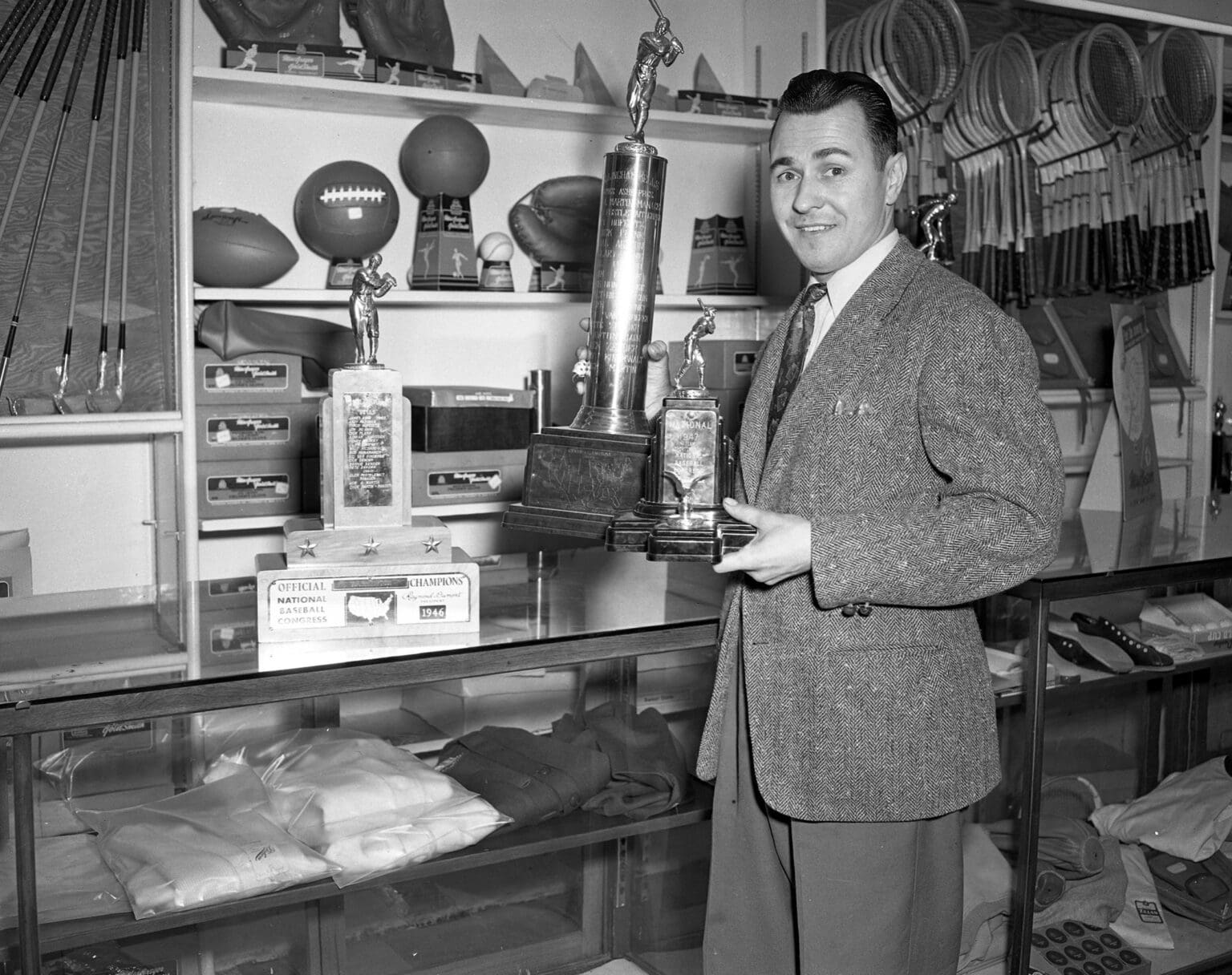Long before the Bellingham Bells — as we know them now — were filling Joe Martin Stadium with baseball-hungry fans, the ballfield’s namesake was building his resume as Bellingham’s “Mr. Baseball.”
Joe Martin was an athlete, Hall of Fame baseball manager, referee and sporting goods store operator during his storied life. He died in 1981 at the age of 72. The stadium, which was constructed in 1964, was named after Martin one year before his passing.
“The best thing was that they named the stadium after him while he was still alive,” Richard Martin, Joe’s son, said in an April 19, 1999 Bellingham Herald article. “It was probably the greatest moment that he ever had.”
Martin managed the Bells from 1942–73. Leading the early-age Bells, Martin guided them to 20 National Baseball Congress (NBC) state championships and a dozen trips to the national tournament. The team placed third in 1940 and 1964, and Martin was a 2023 inductee into both the NBC Hall of Fame and Washington Sports Hall of Fame.
NBC named him Sportsman of the Decade in the 1950s and Manager of the Year in 1964.
“He got more out of players than anybody I ever saw,” Bob Nunamaker, a shortstop for the Bells from 1946–64, said in the 1999 article. “Baseball was his life.”
Martin was also the first to bring professional baseball to Bellingham at the end of that span, signing a Class A (minor league) short-season agreement with the Los Angeles Dodgers — forming the Bellingham Dodgers.
That team played at Joe Martin Stadium (then Civic Field, a name that now belongs to its adjacent football stadium) from 1973–76. The Dodgers struggled at times, namely in the 1975 season when they began 0-24 and set the “modern major league record” for most consecutive losses, surpassing the Philadelphia Phillies’ 1965 team and tying Cleveland’s all-time mark from 1899. Bill Berrier managed that Dodgers team while Martin was the general manager.
The Seattle Mariners then claimed Bellingham as its short-season minor league affiliate, the Bellingham Mariners. The “Baby M’s,” as they were affectionately referred to, played at Joe Martin Stadium from 1977–94. (Bellingham fans had the early, golden opportunity to watch future MLB stars like Ken Griffey Jr. and Edgar Martinez.) Martin was also the general manager for the Bellingham Mariners for a time.
Bellingham’s final minor league team was the Bellingham Giants, a minor league affiliate of the San Francisco Giants, which existed from 1995–96.
In 1981, the Northwest League — the league the Bellingham Mariners played in — created the Joe Martin Award, an honor bestowed to an individual who represented service to the league. Bob Richmond, the league’s president from 1974–81, was the first to earn the accolade.
“Everybody knew Joe,” Beryl Martin, Joe’s wife, said in the 1999 article. “Now it’s different. Now it’s ‘Joe who?’ There are so many new people in town. But once in a while, there is somebody that remembers.”

Early Life
Martin was born in 1908 as Joseph Martinolich, eventually shortening his family name in the 1940s as his Bellingham claim to fame grew.
He played football, basketball and baseball at Whatcom High School — now the site of Whatcom Middle School — and later went on to play football at Washington State College (now Washington State University).
After returning to Bellingham he played baseball in the city league until he was named the manager of the Bells in 1942.
Bells’ Evolution
The Bellingham Bells, as they exist now, were founded in 1999 and originally played in the Pacific International League before joining the West Coast League (WCL) in 2005. Fittingly, the now-summer collegiate baseball team reclaimed its name from the mid-1900s.
In their first year in the WCL, the Bells lost 2-0 to the Wenatchee AppleSox in the league championship. Since 2005, the team has gone 469-418 and won one WCL Championship (2014).




